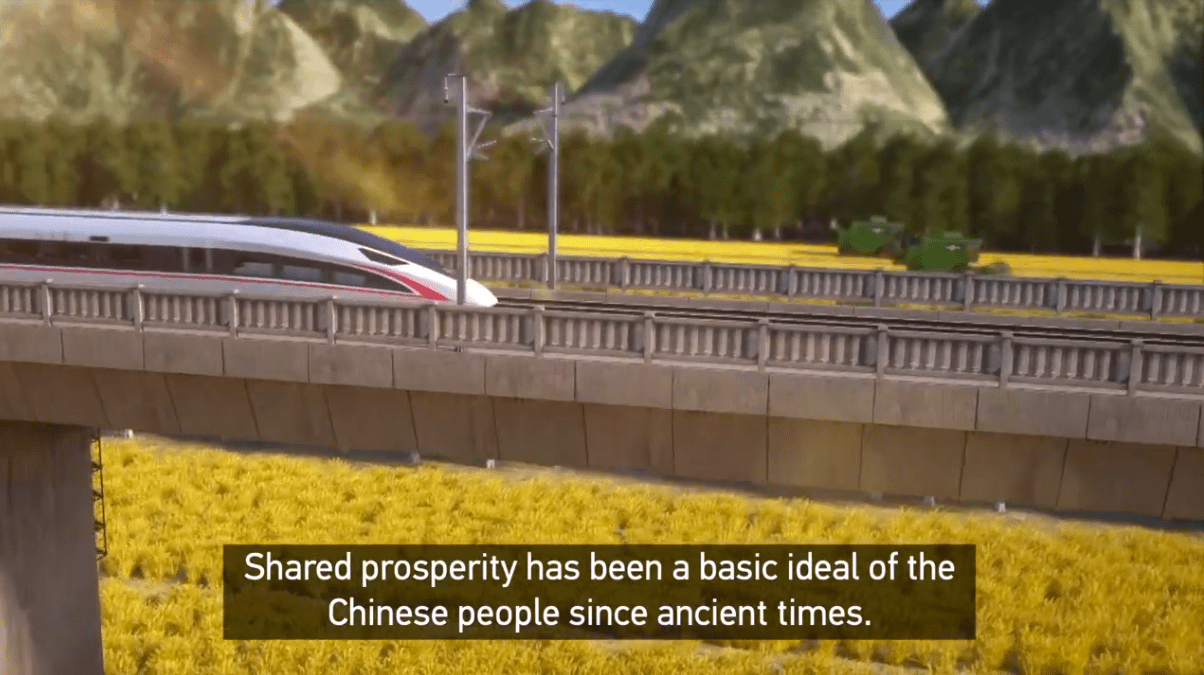This week, a special Television production of some of the notable speeches, articles, and talks made by Chinese President Xi Jinping was released to the African audience by China Media Group.
The documentary series which has been translated into English, French, Arabic, Hausa, Swahili, and other languages was unveiled in South Africa, at an event attended by government officials, scholars, media professionals, business community among others. The documentary has so far been broadcast by leading news outlets in Africa including the Kenya Broadcasting Corporation, in Kenya. The series was flagged off at a time when the Swahili version of the Xi Jinping book on the Governance of China was launched in Nairobi.
What is noteworthy in the latest TV production is the affirmation of the Chinese leader’s vision for a united and prosperous China, Africa, and the world. The series narrowed down the issues given prominence by Xi in areas such as; China’s governance, international relations, ecological civilization, common prosperity as well as the importance of practice.
The documentary showcases the Chinese leader’s profound commitment to the well-being of humanity. The series is loaded with immense ideas and concepts and will highly likely benefit those who closely follow China to learn from Xi’s knowledge of governance and understand the reasons behind the changes in China in the new era.
It also presents China as a country with leaders who can be trusted to keep their end of the bargain, stemming from the spiritual and cultural roots of the Chinese path to modernization. The specific quotes in the series introduce Africa much deeper to Chinese society and what it stands for.
In his views on international cooperation, for instance, President Xi says “We must attach more importance to righteousness than to interests,” further affirming his position that China and its leadership will endeavor to do what is right, especially, before humanity at all times, irrespective of geographical location.
They serve as a reminder that China and its leaders hold dear the belief that while pushing for cooperation and partnership, the EAST Asian country will not seek to benefit at the expense of others, an important lesson to other countries.
He adds that the “Chinese nation has always advocated that a person of virtue takes righteousness as a fundamental principle of life” emphasizing that “riches and honors acquired by righteousness are meaningless,”
Such remarks by President Xi are totally at odds with claims that China, in seeking to extend support to countries in the Global South is setting them up on a ‘debt trap.’ Indeed, despite numerous accusations that China was out to seize assets belonging to countries that appear or have defaulted on their loans, there is no single evidence that China has walked this path. If anything, countries, mostly in Africa, have found China a worthy partner.
As well, President Xi, in the main philosophy behind China’s governance, believes there are some fixed principles in governing a state among which benefitting the people should be the root.
“The people-centered development philosophy is not an abstract, abstruse concept. We will not restrict ourselves to lip service or idle reflection but put it into practice in all areas of social and economic development,” he said, buttressing his idea of leadership as one that puts the people and their needs first. He has himself demonstrated this having helped more than 800 million Chinese to come out of absolute poverty. During the COVID-19 pandemic and other natural disasters such as floods and earthquakes in the past, China mobilized resources and manpower on a massive scale to aid those affected. It has done the same in countries that have experienced catastrophes.
Examples are plenty in this regard, given his rallying call for the nation to realize, safeguard, and develop the fundamental interests of the overwhelming majority of the people.
One of the series carries his message to those in leadership to back up their promises with real actions. “What we fear the most is to become someone who is full of big talk but lacking action,” he said
And, of course, the message that he has taken with him everywhere he has gone since he rose to the apex of Chinese politics is his emphasis on common prosperity for the benefit of all. To him, shared development represents the idea of People-centred development.
President Xi in the TV production is quoted saying “Shared prosperity has been the basic idea of the Chinese people since ancient times,”
He also quotes Confucius who said: “He is not concerned lest his people should be poor, but only lest what they have should be ill-apportioned,” It confirms China means well, always preaching against dishonest treatment of any nation. It shows Beijing is eager to see other nations prosper even as it walks towards achieving its own development aspirations in the new era.
Over and above this, the principles espoused in his speeches also explain why China in its messaging has been consistent through the years.
There is no doubt that the five areas featured in the TV production shed light on Xi’s desire to see more people understand the Chinese culture, its code of success as well and the Chinese path to modernization. He shares his wisdom on the success attained by China with a conviction that Africa, and other least developed parts of the world, can be strengthened and empowered and only ought to give themselves a chance to do so through the right mindset, and structures, surrounded by the genuine friends.
Eric Biegon is a multimedia journalist at Kenya Broadcasting Corporation.





